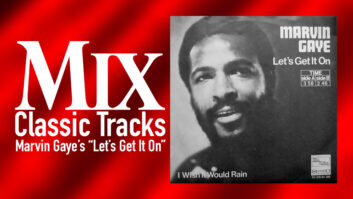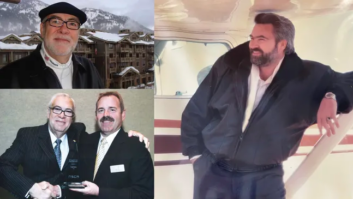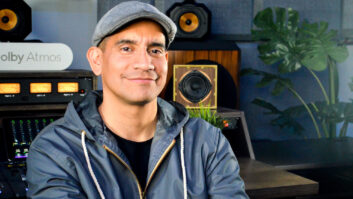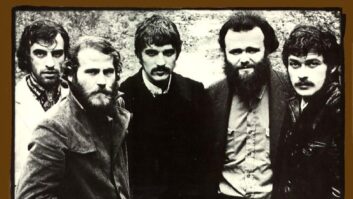This is the part of the magazine where I’m supposed to comment on the longest-running overnight sensation in technology: HDTV. Or provide a rally cry to the stragglers who have delayed their digital conversion and won’t be ready for February 2009. Or wonder out loud what it means that major manufacturers have pulled out of NAB. We’re a technology magazine, and it’s our sound-for-picture issue.
Instead, I keep thinking about a guy I met who worked in sound-for-picture. A regular guy with considerable talent and an artist’s ear. The kind of guy we all know: calm and compassionate, funny and warm, sincere and light, curious and committed. A guy who seems to have career and life in balance. A guy who has found perspective. I’m talking about J. Paul Huntsman.
Paul passed away on February 21 at the age of 55, three years after discovering a brain tumor. I knew he had been sick and had run into him on the Warner Bros. lot less than a year ago, but the news still shocked me. Others surely knew him better, but I did consider him a friend. We bonded over the course of a year back in 1997-’98, during the making of The Thin Red Line, which he supervised and I wrote about.
I was somewhat obsessed with Terrence Malick’s return to filmmaking at the time. I tracked Paul down a full nine months before the story was due, and he indulged my endless questions and gave freely of his thoughts and impressions. We talked weekly. Sometimes he would rave about a 45-minute DAT that “Salty” Brincat had sent from Guadalcanal of the rain forest waking up at dawn. Or he would relate the many, many talks he’d had with Malick about birds, the single note or “call” that Malick might want. He talked about recording authentic WWII guns and made it sound both practical and poetic. And he always talked about his crew.
Other times we’d talk about literature. Paul was an avid reader and turned me on to Cormac McCarthy and Wallace Stegner, two of my favorites to this day. I scoured Bay Area bookshops and finally found a first-edition Thin Red Line to send him once the movie was out. I imagined Paul hearing the book as he read it.
Paul would have been tickled that a McCarthy book made it to Best Picture and won, three days after his death. He would also have appreciated the spare Skip Lievsay/Carter Burwell soundtrack, and called it “appropriate to the Plains.” He was an avid supporter of digital technology (he loved his Fairlight!) and file interchange, and he worked for all sound editors as a member of the Board of Governors for the Academy since 2003.
Paul taught me that we bring our everyday experience to our work, that they can’t — and shouldn’t — be separated. Paul heard good writing. And he heard the world just as a matter of course. He loved to listen to Idaho when he was out fly fishing and could describe what a fast-moving creek and the snap of a line sounded like. Then he brought all that to his tracks.
So as I walk around NAB and marvel at the technology that drives our world, I’ll remember that it’s people who drive technology. The poetry in J. Paul Huntsman’s tracks was a reflection of the way he approached life. He had balance, he had perspective, and he had heart.







